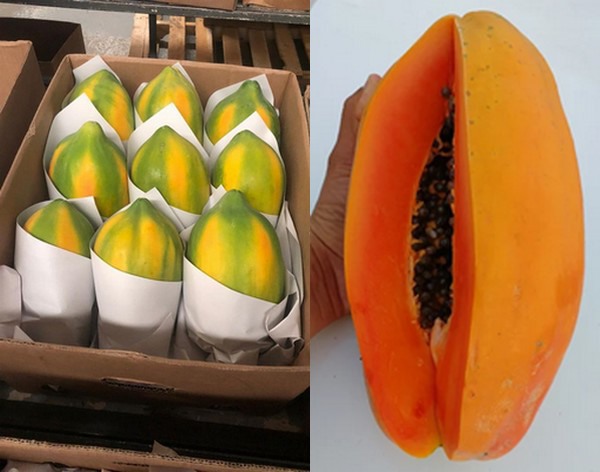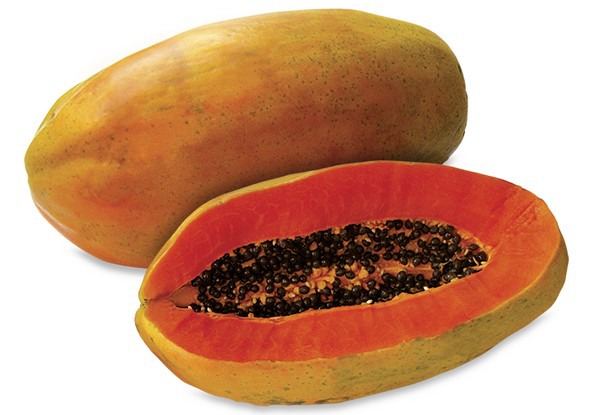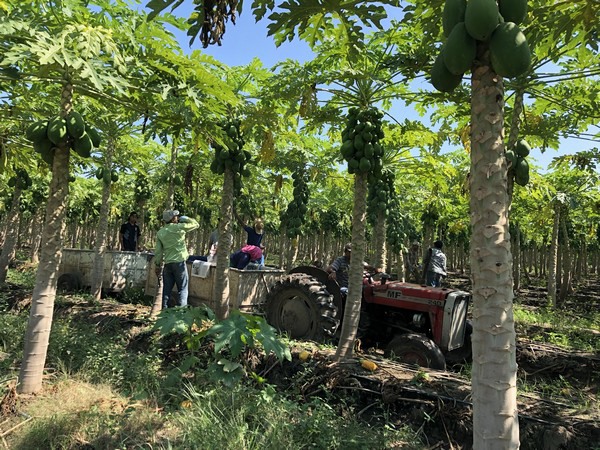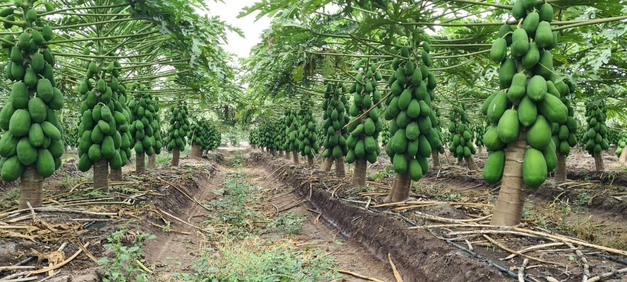Papaya is widely produced in tropical and subtropical regions. However, they are capricious and sensitive to different climates. In addition, shipping is a big challenge for Papaya growers worldwide. In order to increase the productivity and improve the quality of the fruits, East-West Seed Company introduced a new hybrid Papaya variety, “Maradona”, to the market. So far, production in Mexico shows great potential. The crop manager Jan Lippstreu and his colleagues introduced this variety.

Maradona variety becomes increasingly popular
Mrs. Katherine Panergayo is the Papaya breeder at East-West Seed Company. She first introduced the breeding history of the ‘Maradona’ variety. “This variety was among the first set of test hybrids developed by East-West Seeds after it started its Papaya breeding program around the year 2000. It takes us 8 years to develop the hybrids and another 3 years of testing and commercial seed production, before the selected hybrids are introduced to the market. After we thoroughly tested its eating quality, transportability, shelflife and yield, 'Maradona' started gaining popularity during the last 3 years.”
There are many different varieties of Papaya in the market. When asked about the specialty of ‘Maradona’, Mr. Mario Perches, the Business development manager of the company, said, “First of all, the firmness of 'Maradona' F1 is comparable to OP 'Maradol' which has enjoyed long establishment in the Mexican market. From the production point of view, this variety has an excellent disease tolerance vs anthracnose and PRSV. Its extended fruiting also allows higher yield compared to OP 'Maradol'. And from the market point of view, this variety has a longer shelf life compared with other varieties, and the taste of the fruit is very sweet.

The high cost of controlling pests and diseases
According to Dr. Enrique Vazquez-Garcia, the technical consultant of East-West Seed Company in Mexico, the papaya sector is facing a big challenge. “In the past 40 years, 80-85% of the papaya production area in Mexico is planted with different variants of the open pollinated cultivar 'Red Maradol’. All these variants of 'Red Maradol' have a very similar genetic base and over the years they have lost technical resistances to pests and diseases, and that is on top of their loss of tolerance to wheather extremes like extraordinary heat. For this reason, the main problem faced by papaya producers in Mexico is the high production cost involved in controlling pests and diseases, coupled with new and emerging phytosanitary problems, which have an impact on lower levels of productivity and fruit quality, and therefore reduced profitability.
“In order to have a solution for these major production problems, we developed the ‘Maradona’ variety.” Dr. Enrique Vazquez- Garcia continues, “we use hybrids that are more resistant to pests and diseases and more productive, such as the 'Maradona' F1 hybrid, which is characterized by its rusticity and easy handling. The outputs are in high productivity with good colletotrichum tolerance. For retail it has longer shelf life and higher firmness, resulting in less waste of produce. And the color and flavor of the fruits are better liked by consumers.”

Rumor about GMO papayas
“There is a rumor that many people think papayas are all GMO (genetically modified, red) produced. But this is not true.” The crop manager Jan Lippstreu said. “The vast majority of papayas produced and sold around the globe is not GMO. For us, we use conventional F1 hybrids breeding. Hybrid and GMO are not the same. By the heterosis effect of hybridization, we reach apart from extraordinary yields, a very high level of resistances and tolerances, combined with excellent fruit taste and long shelf life. Consumers do not have to worry about GMO and can enjoy the health benefits and good taste of this tropical fruit.”

Good potential in tropical and subtropical regions
Dr. Enrique Vazquez- Garcia believes the best way to convince farmers to adopt this variety is to let them experience the production. “When growers see the production benefits, traders the superior transportability, and consumers are happy with the fruits, more and more papaya farms will choose for this variety”
Besides Mexico, the production of Maradona also sees good results in other tropical and subtropical regions in Latin America. “Therefore, it can be recommended everywhere where the market requires large fruits with good taste and long shelf life.” Jan Lippstreu said.
East West Seed
East West Seed was established in 1982 in South-East Asia. It was established for supporting small holder farmers in tropical zones by breeding varieties well adapted to their needs and with excellent seed quality. Later on, the company extended its breeding and marketing activities to the other continents in the tropical belt around the globe. In Latin America, the headquarter is in Guatemala, with R&D in various countries on the continent.
For more information:
East West Seed
Dr. Enrique Vazquez-García
enrique.vazquez@eastwestseed.com
https://www.eastwestseed.com
